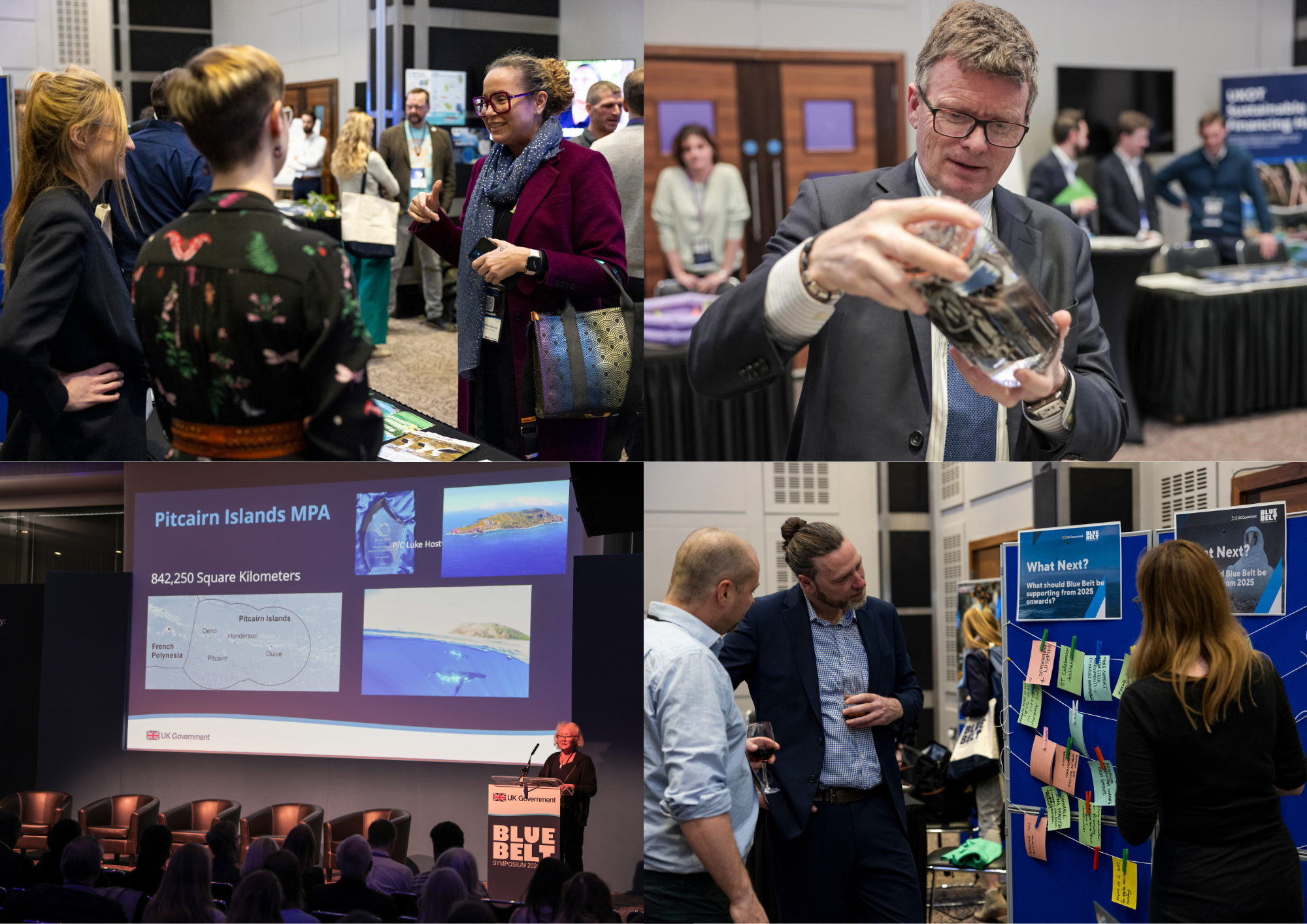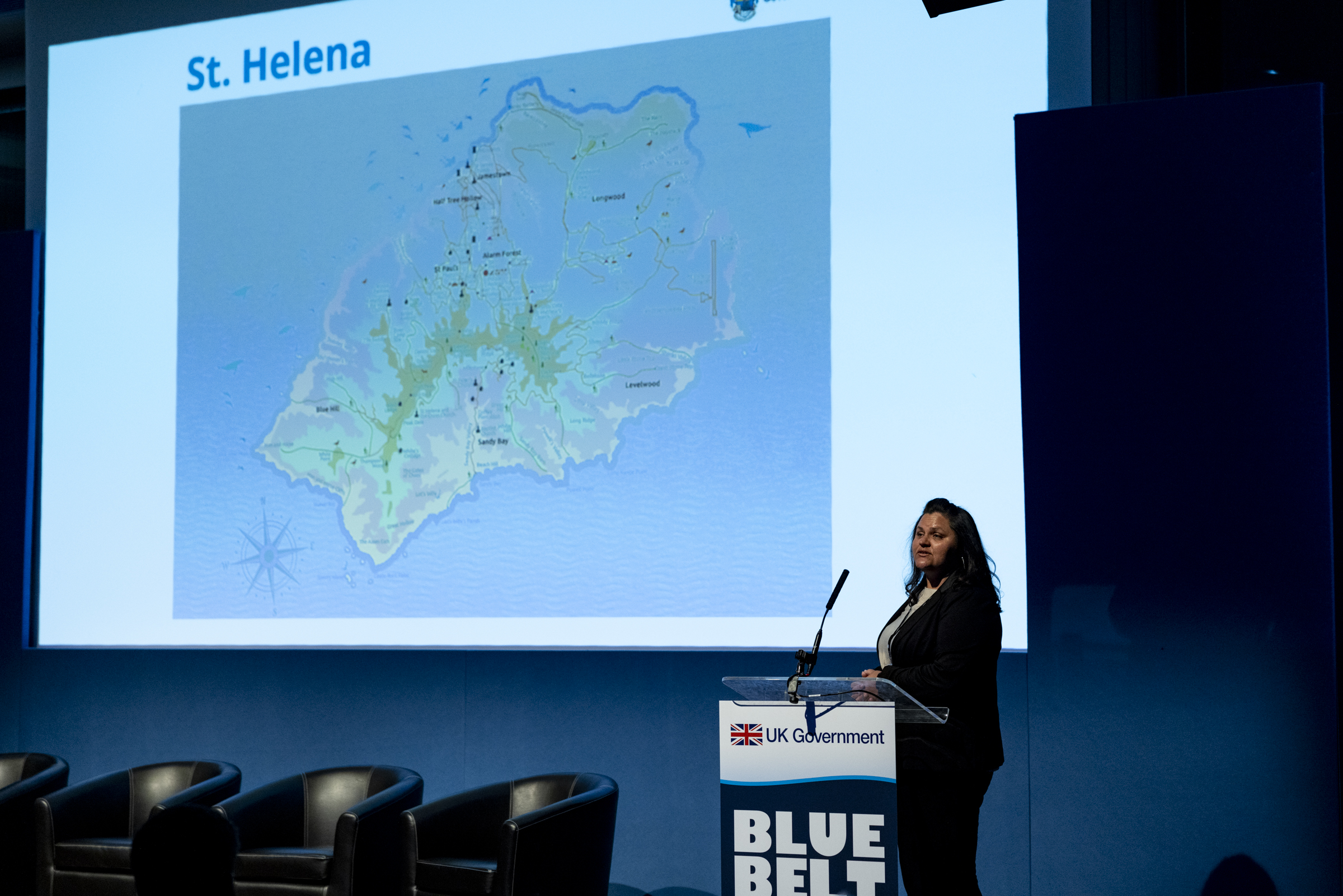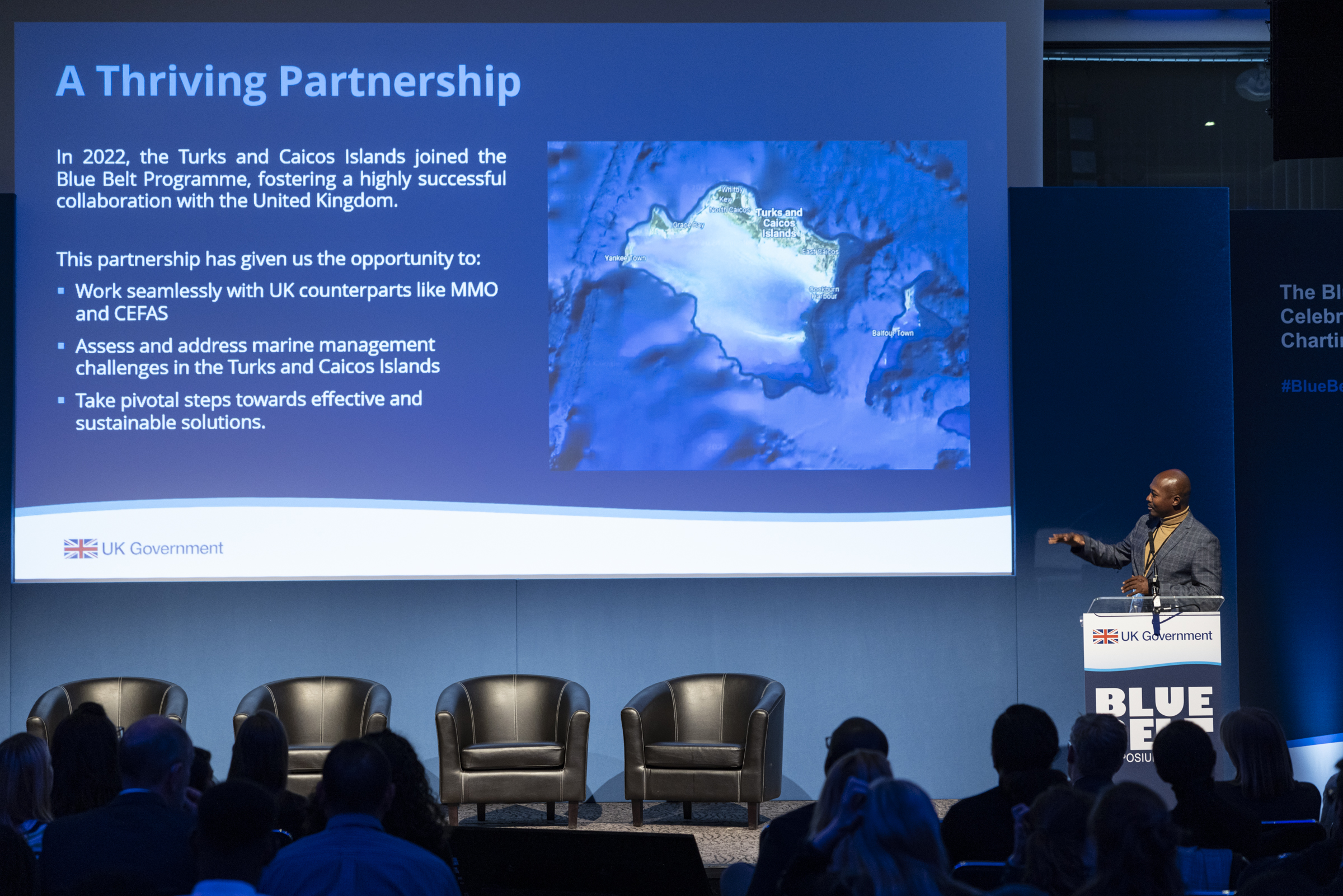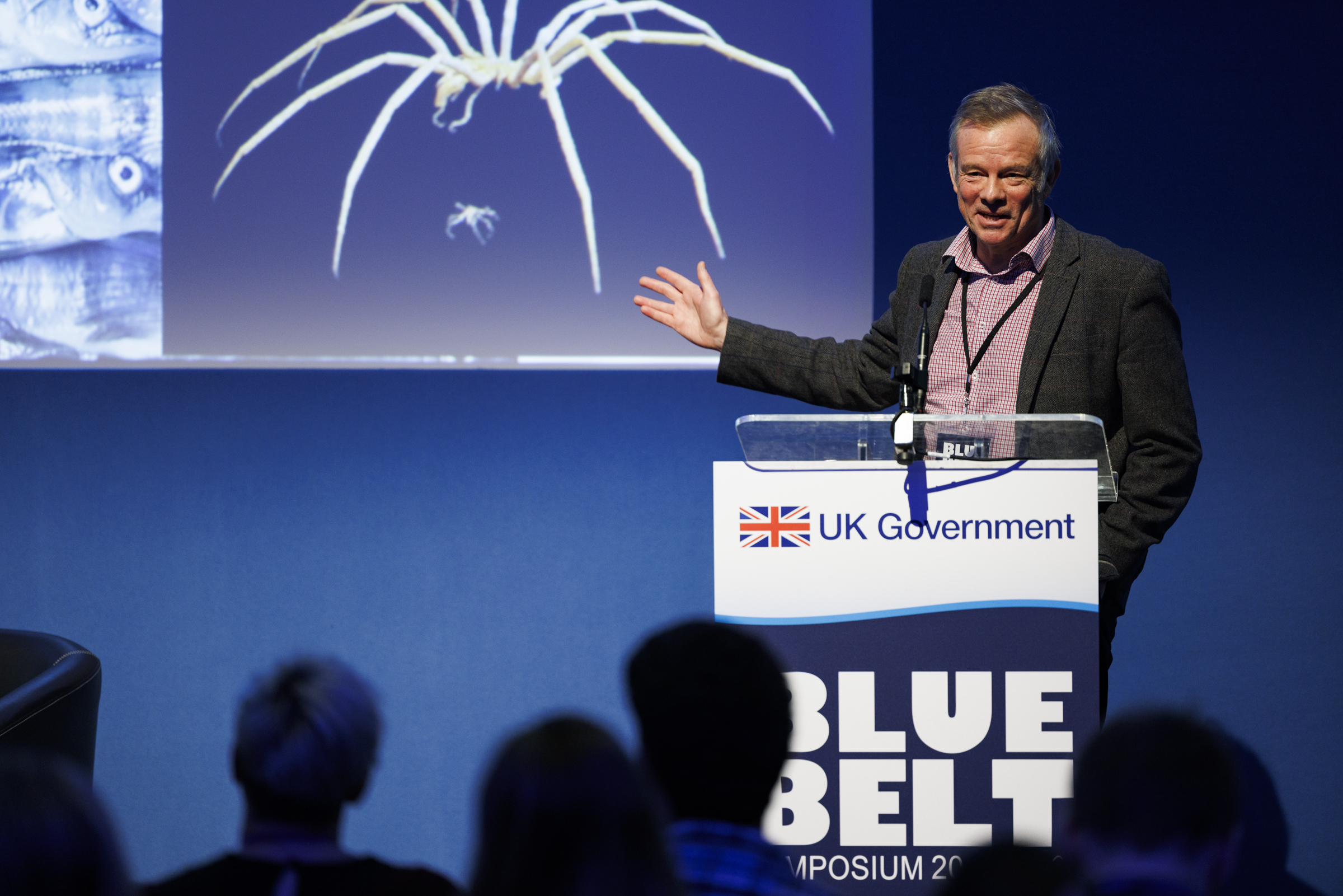In February 2024, the Blue Belt brought together representatives from each of the UK Overseas Territories for a landmark symposium in London.
Over three busy days, presentations, workshops and exhibitions reflected on the Blue Belt Programme and work of the Overseas Territories to date, as well as chart future priorities. The event was opened with a message from His Majesty King Charles III, who in his address remarked:
“In helping to protect several million square kilometres of ocean, the Blue Belt represents a vital contribution not only to the fight against climate change... but also to the urgent need to protect and enhance marine ecosystems as part of the commitment to protect 30% of the global ocean, by 2030”
The symposium marked a rare and valuable opportunity to bring all of the Territories together. Given the Blue Belt territories are spread across every ocean on the planet – from the Pacific and Atlantic, to the Southern and Indian – opportunities to meet in one place are few and far between.

It was because of this that we took the opportunity during the event to catch up with a number of these Territories, and hear from them directly about their work with the Blue Belt, the benefits of the symposium, and what the future holds.
Read extracts from our conversations and find links to the full interviews below.
What have been the benefits of being at the Blue Belt symposium?
Carencia Rouse, Government of Anguilla: I’m most looking forward to understanding the marine conservation work that’s happening in the other Overseas Territories, as well as finding opportunities for collaboration. I think the biggest impact so far has been really connecting Territories from all parts of the globe and finding a commonality in the work that we’ve been doing.
Elizabeth Clingham, Government of St Helena: What I’m most looking forward to is the networking between the UK Overseas Territories. I think it’s first time we’ve all been together. And just listening to some of the presentations already, you can see that there are many similarities between us, as well as differences. But it’ll be really nice just to be able to speak to our counterparts in the different Territories, so we can all learn and build on our experience together.

What is the biggest impact from your partnership with the Blue Belt?
Luc Clerveaux, Government of Turks & Caicos Islands: I think it is two things. Firstly, the UK Government providing the support through financial resources, which the UKOTs do need to ensure the marine resources we have our sustainably managed, so whether that is our coral reefs, seagrass beds or mangroves.
But with that funding as well, the technical support in being able to work with Cefas and MMO. These organisations have had experiences in designing and implementing projects which we are now seeking to implement ourselves – so their expertise has been quite useful in enabling us to be able to deliver, and to build and improve on our existing work.

Mark Belchier, Government of South Georgia & the South Sandwich Islands: The biggest lesson I think we’ve learned from the Blue Belt is that it provides access to a range of experiences and other institutions that provide expertise in the management of the marine environment. In particular, for us at South Georgia and the South Sandwich Islands, having access to satellite surveillance capability has been absolutely wonderful.
What does the future of Blue Belt look like for your UK Overseas Territory?
Mark Belchier: The future of Blue Belt for us at South Georgia & the South Sandwich Islands, I think will be further investment in research in those areas that have been identified as currently lacking a lot of data. But I think ongoing investment in monitoring and surveillance support will be absolutely critical for us, in particular to address the threat of illegal and unreported fishing activity.

Elizabeth Clingham: The future of the Blue Belt Programme for St Helena, I think looks at us being able to properly understand how effective all the management measures we have are, to be able to continue to build on the evidence base that we have, so that our management initiatives can expand, improve and change where necessary.
Watch the full set of interviews here:
- Luc Clerveaux, Government of Turks & Caicos Islands
- Mark Belchier, Government of South Georgia & the South Sandwich Islands
- Elizabeth Clingham, Government of St Helena
- Carencia Rouse, Government of Anguilla
Leave a comment